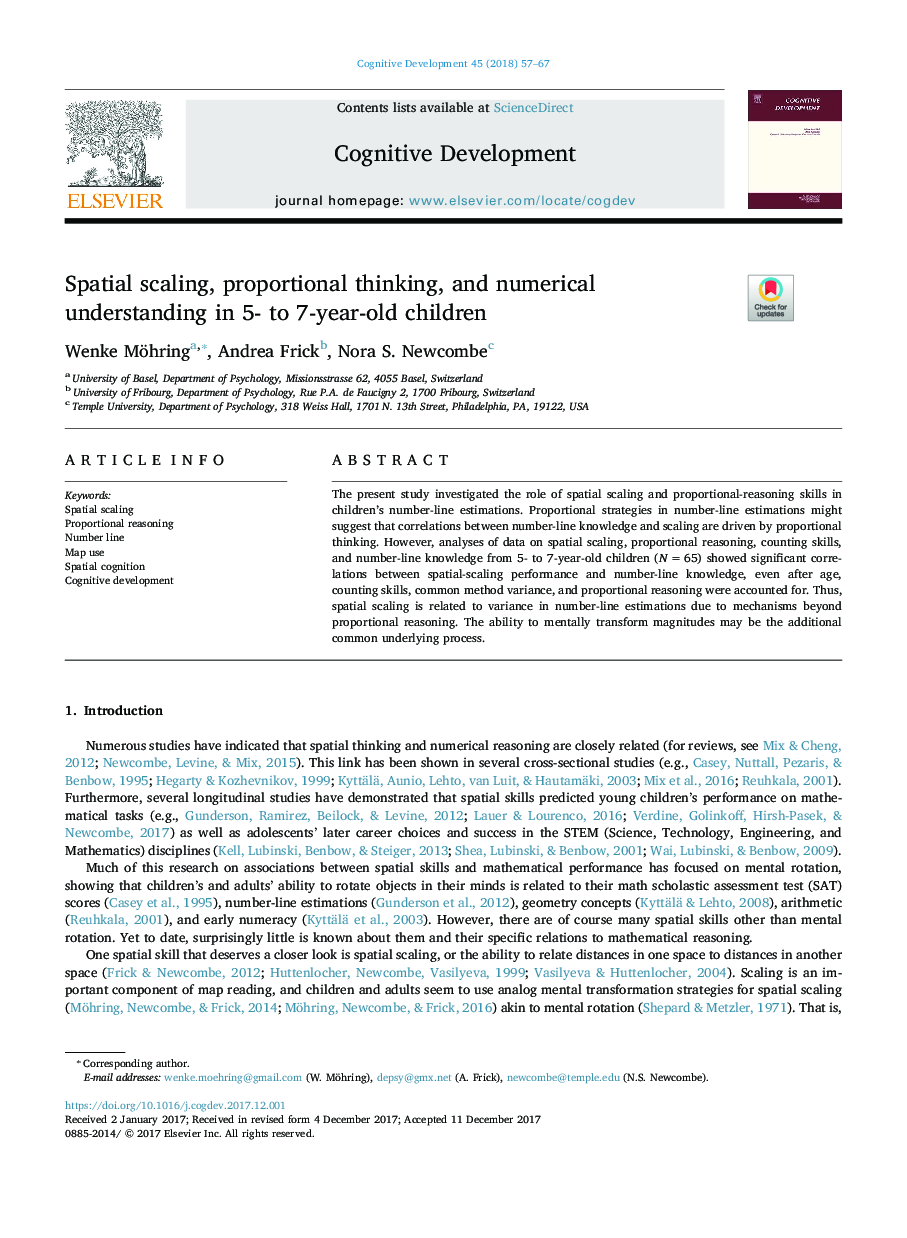| Article ID | Journal | Published Year | Pages | File Type |
|---|---|---|---|---|
| 7272265 | Cognitive Development | 2018 | 11 Pages |
Abstract
The present study investigated the role of spatial scaling and proportional-reasoning skills in children's number-line estimations. Proportional strategies in number-line estimations might suggest that correlations between number-line knowledge and scaling are driven by proportional thinking. However, analyses of data on spatial scaling, proportional reasoning, counting skills, and number-line knowledge from 5- to 7-year-old children (Nâ¯=â¯65) showed significant correlations between spatial-scaling performance and number-line knowledge, even after age, counting skills, common method variance, and proportional reasoning were accounted for. Thus, spatial scaling is related to variance in number-line estimations due to mechanisms beyond proportional reasoning. The ability to mentally transform magnitudes may be the additional common underlying process.
Related Topics
Social Sciences and Humanities
Psychology
Developmental and Educational Psychology
Authors
Wenke Möhring, Andrea Frick, Nora S. Newcombe,
